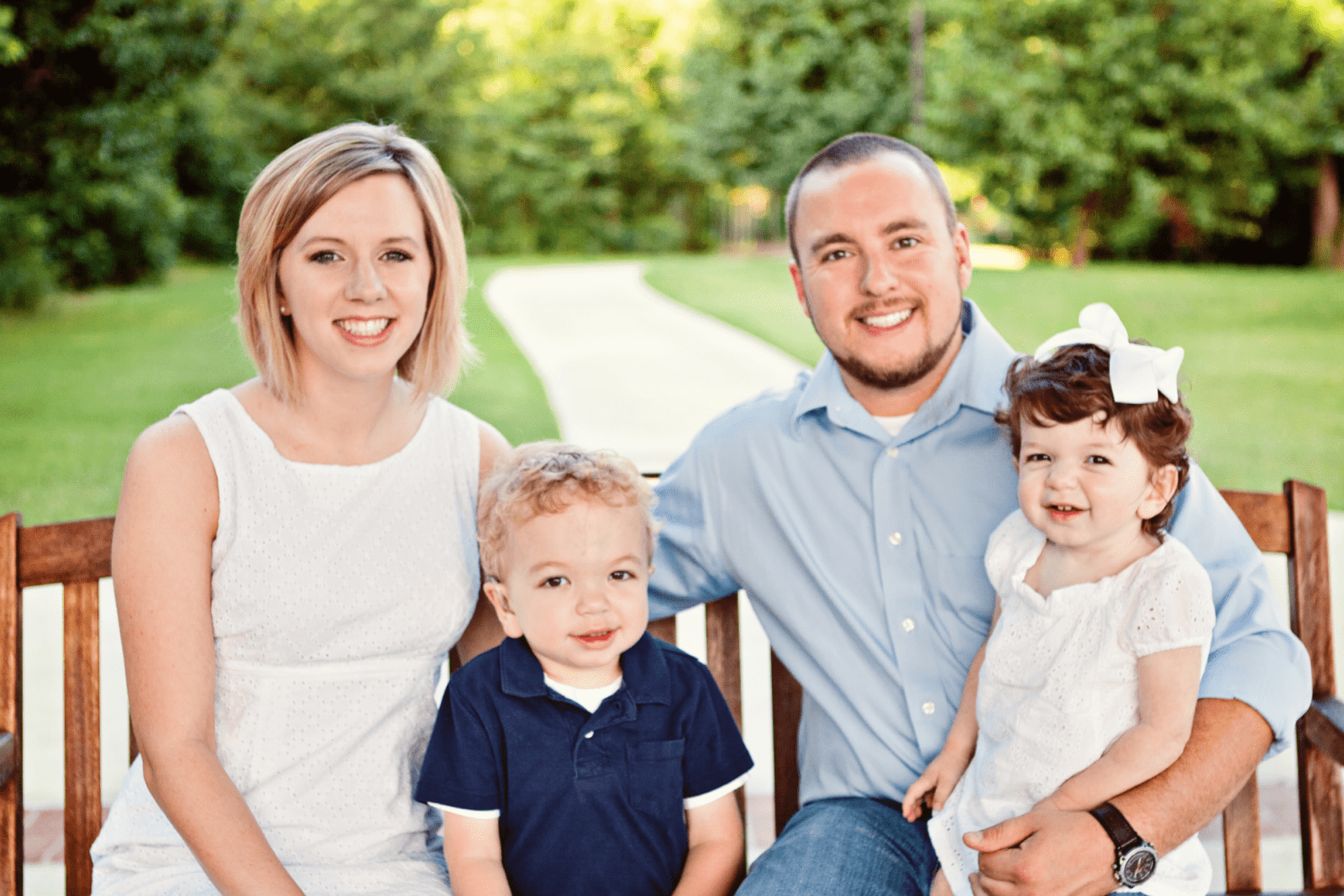Twins With Hurler’s Syndrome Are Given the Best Home

by Molly Sullivan Taylor, Ph. D / photo by Erin Treadway
Mich and Brooke Thomas have two gifts, a little boy named Zachary and a little girl named Amelia. These two are like peas in a pod, both with thick curly hair and eyes that sparkle, quick little smiles and parents that adore them. These siblings also share something else in common, Hurler’s syndrome, in which they don’t produce an enzyme needed to break down cellular waste. This syndrome causes progressive physical and developmental damage within the first few years of life.
Zachary was born first, after a normal pregnancy and normal delivery. Brooke says that although she knew something would be different about him before she delivered, she had no idea how extensive it would be. At 13 months, Dr. Green at Collom & Carney suspected that Zachary had Hurler’s syndrome and sent the Thomas family to Arkansas Children’s Hospital for a formal diagnosis. From that point forward, their lives would consist of hundreds of doctors appointments, blood drawings and millions of miles they would have to travel. Mich and Brooke were told that the only hope for delaying Zachary’s developmental decline was a bone marrow transplant and artificial enzyme replacement. After seeing 14 different specialists they flew to Amplatz Children’s Hospital at the University of Minnesota where the 6 month transplant process started. Mich stayed in Texarkana to work and keep their insurance benefits while Brooke and Zachary were camped out at the Ronald McDonald house during a very cold winter in Minnesota. Zachary endured chemotherapy and then the blood infusion of cord blood, and Brooke found out she was pregnant again.
Hurler’s syndrome is caused by a recessive gene that is carried by the parents. It is very rare, but if both parents are carriers they have a one in four chance in every pregnancy to have a child with Hurler’s syndrome. After extensive genetic testing Mich and Brooke were told that baby Amelia would, indeed, follow in her brother’s footsteps and have Hurler’s, too. Amelia, though not even born yet, became an overnight medical superstar because she was a second child with the same syndrome born into the same family. Specialists from all over the world wanted to study Amelia’s tissues and blood before she was born. Dr. Bradley Schaffer, a geneticist in Little Rock, strongly advocates for Zachary and Amelia. He often orders an extra vile or two of blood to send across the world for others to study so that Zachary and Amelia don’t have to endure more procedures than are necessary. Amelia underwent chemotherapy, a bone marrow transplant and enzyme replacement treatment at 8 months old. If Hurler’s syndrome is not treated, the life expectancy for these children is 10-12 years old with extensive global developmental delays.
Many would view this family, two children with the same syndrome as devastating, but Mich and Brooke don’t see it that way; they choose to step out in faith and see the beauty in it all. This was a path they were familiar with, a path that they felt was meant for them to walk through together. With four sets of grandparents and an army of aunts willing to do anything, their family support gave them the strength to deal with some hard choices. They view themselves as a normal family, who happens to know the best diaper changing stations between Texarkana and Arkansas Children’s Hospital in Little Rock.
The hardest part of this journey for the Thomas family has been watching many friends lose their children with Hurler’s syndrome to complications from the bone marrow transplant. Brooke talked through tearful eyes about bonding with families across the hall in hospitals, families who later lost their children. There is a 30% mortality rate with the cord blood transplant and many of these children don’t live. The fact that both Zachary and Amelia are alive is a miracle in itself. This journey has taught Mich and Brooke to be thankful for each day with their children, to say I love you often and to celebrate the small steps. After all, these two gifts are wrapped in polka dot paper.
Resources:
Opportunities where Zachary and Amelia receive developmental services
www.thethomasfamilytrails.blogspot.com









